- Home
- F. Scott Fitzgerald
The Fantasy and Mystery Stories of F Scott Fitzgerald Page 4
The Fantasy and Mystery Stories of F Scott Fitzgerald Read online
Page 4
The man’s eyes were bent upon his prayer-book. He was very young, twenty at the most, and his dark hair in disorder gave him an even more boyish expression. A light flush lay on his calm face and his lips moved incessantly. He was not nervous. It seemed to him as if he had always known he was to become a priest. Two years before, he had felt the vague stirring, the transcendent sense of seeing heaven in everything, that warned him softly, kindly that the spring of his life was coming. He had given himself every opportunity to resist. He had gone a year to college, four months abroad, and both experiences only increased within him the knowledge of his destiny. There was little hesitation. He had at first feared self-committal with a thousand nameless terrors. He thought he loved the world. Panicky, he struggled, but surer and surer he felt that the last word had been said. He had his vocation – and then, because he was no coward, he decided to become a priest.
Through the long month of his probation he alternated between deep, almost delirous, joy and the same vague terror at his own love of life and his realization of all he sacrificed. As a favorite child he had been reared in pride and confidence in his ability, in faith in his destiny. Careers were open to him, pleasure, travel, the law, the diplomatic service. When, three months before, he had walked into the library at home and told his father that he was going to become a Jesuit priest, there was a family scene and letters on all sides from friends and relatives. They told him he was ruining a promising young life because of a sentimental notion of self sacrifice, a boyish dream. For a month he listened to the bitter melodrama of the commonplace, finding his only rest in prayer, knowing his salvation and trusting in it. After all, his worst battle had been with himself. He grieved at his father’s disappointment and his mother’s tears, but he knew that time would set them right.
And now in half an hour he would take the vows which pledged him forever to a life of service. Eighteen years of study – eighteen years where his every thought, every idea would be dictated to him, where his individuality, his physical ego would be effaced and he would come forth strong and firm to work and work and work. He felt strangely calm, happier in fact than he had been for days and months. Something in the fierce, pulsing heat of the sun likened itself to his own heart, strong in its decision, virile and doing its own share in the work, the greatest work. He was elated that he had been chosen, he from so many unquestionably singled out, unceasingly called for. And he had answered.
The words of the prayers seemed to run like a stream into his thoughts, lifting him up peacefully, serenely; and a smile lingered around his eyes. Everything seemed so easy; surely all life was a prayer. Up and down he walked. Then of a sudden something happened. Afterwards he could never describe it except by saying that some undercurrent had crept into his prayer, something unsought, alien. He read on for a moment and then it seemed to take the form of music. He raised his eyes with a start – far down the dusty road a group of negro hands were walking along singing, and the song was an old song that he knew:
‘We hope ter meet you in heavan whar we’ll
Part no mo’,
Whar we’ll part no mo’.
Gawd a’moughty bless you twel we
Me–et agin.’
Something flashed into his mind that had not been there before. He felt a sort of resentment toward those who had burst in upon him at this time, not because they were simple and primitive, but because they had vaguely disturbed him. That song was old in his life. His nurse had hummed it through the dreamy days of his childhood. Often in the hot summer afternoons he had played it softly on his banjo. It reminded him of so many things: months at the seashore on the hot beach with the gloomy ocean rolling around him, playing with sand castles with his cousin; summer evenings on the big lawn at home when he chased fireflys and the breeze carried the tune over the night to him from the negro-quarters. Later, with new words, it had served as a serenade – and now – well, he had done with that part of life, and yet he seemed to see a girl with kind eyes, old in a great sorrow, waiting, ever waiting. He seemed to hear voices calling, children’s voices. Then around him swirled the city, busy with the hum of men; and there was a family that would never be, beckoning him.
Other music ran now as undercurrent to his thoughts: wild, incoherent, music, illusive and wailing, like the shriek of a hundred violins, yet clear and chord-like. Art, beauty, love and life passed in a panorama before him, exotic with the hot perfumes of world-passion. He saw struggles and wars, banners waving somewhere, voices giving hail to a king – and looking at him through it all were the sweet sad eyes of the girl who was now a woman.
Again the music changed; the air was low and sad. He seemed to front a howling crowd who accused him. The smoke rose again around the body of John Wycliffe, a monk knelt at a prie-dieu and laughed because the poor had not bread, Alexander VI pressed once more the poisoned ring into his brother’s hand, and the black robed figures of the inquisition scowled and whispered. Three great men said there was no God, a million voices seemed to cry, ‘Why! Why! must we believe?’ Then as in a crystal he seemed to hear Huxley, Nietzsche, Zola, Kant cry, ‘I will not’ – He saw Voltaire and Shaw wild with cold passion. The voices pleaded ‘Why?’ and the girl’s sad eyes gazed at him with infinite longing.
He was in a void above the world – the ensemble, everything called him now. He could not pray. Over and over again he said senselessly, meaninglessly, ‘God have mercy, God have mercy.’ For a minute, an eternity, he trembled in the void and then – something snapped. They were still there, but the girl’s eyes were all wrong, the lines around her mouth were cold and chiselled and her passion seemed dead and earthy.
He prayed, and gradually the cloud grew clearer, the images appeared vague and shadowy. His heart seemed to stop for an instant and then – he was standing by the bank and a bell was tolling five. The reverend superior came down the steps and toward him.
‘It is time to go in.’ The man turned instantly.
‘Yes, Father, I am coming.’
II
The novices filed silently into the chapel and knelt in prayer. The blessed Sacrament in the gleaming monstrance was exposed among the flaming candles at the altar. The air was rich and heavy with incense. The man knelt with the others. A first chord of the magnificat, sung by the concealed choir above, startled him; he looked up. The late afternoon sun shone through the stained glass window of St Francis Xavier on his left and fell in red tracery on the cassock of the man in front of him. Three ordained priests knelt at the altar. Above them a huge candle burned. He watched it abstractedly. To the right of him a novice was telling his beads with trembling fingers. The man looked at him. He was about twenty-six with fair hair and green-grey eyes that darted nervously around the chapel. They caught each other’s eye and the elder glanced quickly at the altar candle as if to draw attention to it. The man followed his eye and as he looked he felt his scalp creep and tingle. The same unsummoned instinct filled him that had frightened him half an hour ago on the bank. His breath came quicker. How hot the chapel was. It was too hot; and the candle was wrong – wrong – everything suddenly blurred. The man on his left caught him.
‘Hold up,’ he whispered, ‘they’ll postpone you. Are you better? Can you go through with it?’
He nodded vaguely and turned to the candle. Yes, there was no mistake. Something was there, something played in the tiny flame, curled in the minute wreath of smoke. Some evil presence was in the chapel, on the very altar of God. He felt a chill creeping over him, though he knew the room was warm. His soul seemed paralyzed, but he kept his eyes riveted on the candle. He knew that he must watch it. There was no one else to do it. He must not take his eyes from it. The line of novices rose and he mechanically reached his feet.
‘Per omnia saecula, saeculorum. Amen.’
Then he felt suddenly that something corporeal was missing – his last earthly support. He realized what it was. The man on his left had gone out overwrought and shaken. Then it began. Something before
had attacked the roots of his faith; had matched his world-sense against his God-sense, had brought, he had thought, every power to bear against him; but this was different. Nothing was denied, nothing was offered. It could best be described by saying that a great weight seemed to press down upon his innermost soul, a weight that had no essence, mental or physical. A whole spiritual realm evil in its every expression engulfed him. He could not think, he could not pray. As in a dream he heard the voices of the men beside him singing, but they were far away, farther away from him than anything had ever been before. He existed on a plane where there was no prayer, no grace; where he realized only that the forces around him were of hell and where the single candle contained the essence of evil. He felt himself alone pitted against an infinity of temptation. He could bring no parallel to it in his own experience or any other. One fact he knew: one man had succumbed to this weight and he must not – must not. He must look at the candle and look and look until the power that filled it and forced him into this plane died forever for him. It was now or not at all.
He seemed to have no body and even what he had thought was his innermost self was dead. It was something deeper that was he, something that he had never felt before. Then the forces gathered for one final attack. The way that the other novice had taken was open to him. He drew his breath quickly and waited and then the shock came. The eternity and infinity of all good seemed crushed, washed away in an eternity and infinity of evil. He seemed carried helplessly along, tossed this way and that – as in a black limitless ocean where there is no light and the waves grow larger and larger and the sky darker and darker. The waves were dashing him toward a chasm, a maelstrom everlastingly evil, and blindly, unseeingly, desperately he looked at the candle, looked at the flame which seemed like the one black star in the sky of despair. Then suddenly he became aware of a new presence. It seemed to come from the left, seemed consummated and expressed in warm, red tracery somewhere. Then he knew. It was the stained window of St Francis Xavier. He gripped at it spiritually, clung to it and with aching heart called silently for God.
‘Tantum ergo Sacramentum
Veneremur cernui.’
The words of the hymn gathered strength like a triumphant paean of glory, the incense filled his brain, his very soul, a gate clanged somewhere and the candle on the altar went out.
‘Ego vos absolvo a peccatis tuis in nomine patris, filii, spiritus sancti. Amen.’
The file of novices started toward the altar. The stained lights from the windows mingled with the candle glow and the eucharist in its golden halo seemed to the man very mystical and sweet. It was very calm. The subdeacon held the book for him. He placed his right hand upon it.
‘In the name of the Father and the Son and of the Holy Ghost –’
Tarquin of Cheapside
I
Running footsteps – light, soft-soled shoes made of curious leathery cloth brought from Ceylon setting the pace; thick flowing boots, two pairs, dark blue and gilt, reflecting the moonlight in blunt gleams and splotches, following a stone’s throw behind.
Soft Shoes flashes through a patch of moonlight, then darts into a blind labyrinth of alleys and becomes only an intermittent scuffle ahead somewhere in the enfolding darkness. In go Flowing Boots, with short swords lurching and long plumes awry, finding a breath to curse God and the black lanes of London.
Soft Shoes leaps a shadowy gate and crackles through a hedgerow. Flowing Boots leap the gate and crackles through the hedgerow – and there, startlingly, is the watch ahead – two murderous pikemen of ferocious cast of mouth acquired in Holland and the Spanish marches.
But there is no cry for help. The pursued does not fall panting at the feet of the watch, clutching a purse; neither do the pursuers raise a hue and cry. Soft Shoes goes by in a rush of swift air. The watch curse and hesitate, glance after the fugitive, and then spread their pikes firmly across the road and wait for Flowing Boots. Darkness, like a great hand, cuts off the even flow of the moon.
The hand moves off the moon whose pale caress finds again the eaves and lintels, and the watch, wounded and tumbled in the dust. Up the street one of Flowing Boots leaves a black trail of spots until he binds himself, clumsily as he runs, with fine lace caught from his throat.
It was no affair for the watch: Satan was at large tonight and Satan seemed to be he who appeared dimly in front, heel over gate, knee over fence. Moreover, the adversary was obviously travelling near home or at least in that section of London consecrated to his coarser whims, for the street narrowed like a road in a picture and the houses bent over further and further, cooping in natural ambushes suitable for murder and its histrionic sister, sudden death.
Down long and sinuous lanes twisted the hunted and the harriers, always in and out of the moon in a perpetual queen’s move over a checker-board of glints and patches. Ahead, the quarry, minus his leather jerkin now and half blinded by drips of sweat, had taken to scanning his ground desperately on both sides. As a result he suddenly slowed short, and retracing his steps a bit scooted up an alley so dark that it seemed that here sun and moon had been in eclipse since the last glacier slipped roaring over the earth. Two hundred yards down he stopped and crammed himself into a niche in the wall where he huddled and panted silently, a grotesque god without bulk or outline in the gloom.
Flowing Boots, two pairs, drew near, came up, went by, halted twenty yards beyond him, and spoke in deep-lunged, scanty whispers:
‘I was attune to that scuffle, it stopped.’
‘Within twenty paces.’
‘He’s hid.’
‘Stay together now and we’ll cut him up.’
The voice faded into a low crunch of a boot, nor did Soft Shoes wait to hear more – he sprang in three leaps across the alley, where he bounded up, flapped for a moment on the top of the wall like a huge bird, and disappeared, gulped down by the hungry night at a mouthful.
II
He read at wine, he read in bed,
He read aloud, had he the breath,
His every thought was with the dead,
And so he read himself to death.
Any visitor to the old James the First graveyard near Peat’s Hill may spell out this bit of doggerel, undoubtedly one of the worst recorded of an Elizabethan, on the tomb of Wessel Caxter.
This death of his, says the antiquary, occurred when he was thirty-seven, but as this story is concerned with the night of a certain chase through darkness, we find him still alive, still reading. His eyes were somewhat dim, his stomach somewhat obvious – he was a misbuilt man and indolent – oh, Heavens! But an era is an era, and in the reign of Elizabeth, by the grace of Luther, Queen of England, no man could help but catch the spirit of enthusiasm. Every loft in Cheapside published its Magnum Folium (or magazine) of the new blank verse; the Cheapside Players would produce anything on sight as long as it ‘got away from those reactionary miracle plays,’ and the English Bible had run through seven ‘very large’ printings in as many months.
So Wessel Caxter (who in his youth had gone to sea) was now a reader of all on which he could lay hands – he read manuscripts in holy friendship; he dined rotten poets; he loitered about the shops where the Magna Folia were printed, and he listened tolerantly while the young playwrights wrangled and bickered among themselves, and behind each other’s backs made bitter and malicious charges of plagiarism or anything else they could think of.
To-night he had a book, a piece of work which, though inordinately versed, contained, he thought, some rather excellent political satire. ‘The Faerie Queene’ by Edmund Spenser lay before him under the tremulous candle-light. He had ploughed through a canto; he was beginning another:
THE LEGEND OF BRITOMARTIS OR OF CHASTITY
It falls me here to write of Chastity.
The fayrest vertue, far above the rest …
A sudden rush of feet on the stairs, a rusty swing-open of the thin door, and a man thrust himself into the room, a man without a jerkin, panting, sobbing, on the ve
rge of collapse.
‘Wessel,’ words choked him, ‘stick me away somewhere, love of Our Lady!’
Caxter rose, carefully closing his book, and bolted the door in some concern.
‘I’m pursued,’ cried out Soft Shoes. ‘I vow there’s two short-witted blades trying to make me into mincemeat and near succeeding. They saw me hop the back wall!’
‘It would need,’ said Wessel, looking at him curiously, ‘several battalions armed with blunderbusses, and two or three Armadas, to keep you reasonably secure from the revenges of the world.’
Soft Shoes smiled with satisfaction. His sobbing gasps were giving way to quick, precise breathing; his hunted air had faded to a faintly perturbed irony.
‘I feel little surprise,’ continued Wessel.
‘They were two such dreary apes.’
‘Making a total of three.’
‘Only two unless you stick me away. Man, man, come alive; they’ll be on the stairs in a spark’s age.’
Wessel took a dismantled pike-staff from the corner, and raising it to the high ceiling, dislodged a rough trap-door opening into a garret above.
‘There’s no ladder.’
He moved a bench under the trap, upon which Soft Shoes mounted, crouched, hesitated, crouched again, and then leaped amazingly upward. He caught at the edge of the aperture and swung back and forth for a moment, shifting his hold; finally doubled up and disappeared into the darkness above. There was a scurry, a migration of rats, as the trap-door was replaced; … silence.
Wessel returned to his reading-table, opened to the Legend of Britomaris or of Chastity – and waited. Almost a minute later there was a scramble on the stairs and an intolerable hammering at the door. Wessel sighed and, picking up his candle, rose.

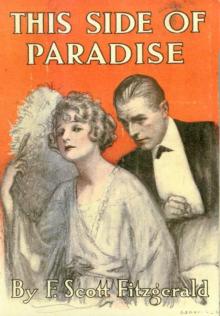 This Side of Paradise
This Side of Paradise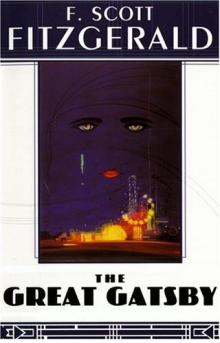 The Great Gatsby
The Great Gatsby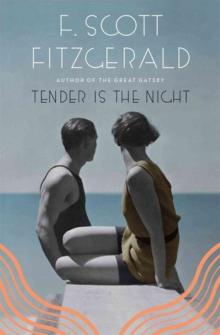 Tender Is the Night
Tender Is the Night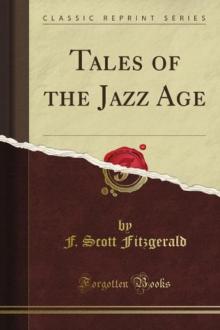 Tales of the Jazz Age (Classic Reprint)
Tales of the Jazz Age (Classic Reprint)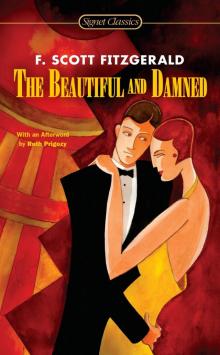 The Beautiful and Damned
The Beautiful and Damned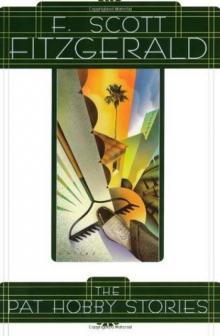 The Pat Hobby Stories
The Pat Hobby Stories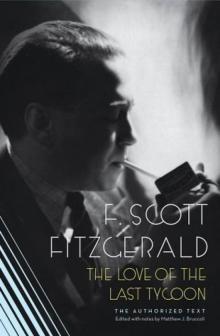 The Love of the Last Tycoon
The Love of the Last Tycoon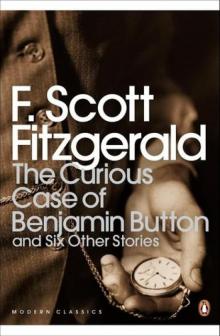 The Curious Case of Benjamin Button and Six Other Stories
The Curious Case of Benjamin Button and Six Other Stories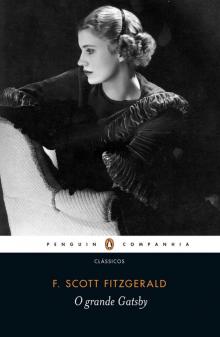 O Grande Gatsby (Penguin)
O Grande Gatsby (Penguin)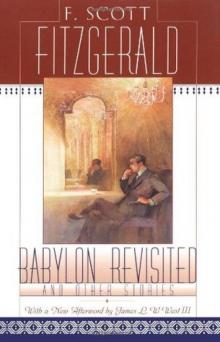 Babylon Revisited and Other Stories
Babylon Revisited and Other Stories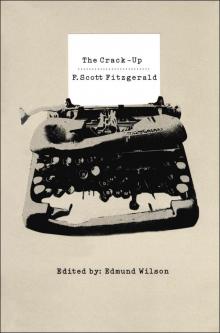 The Crack-Up
The Crack-Up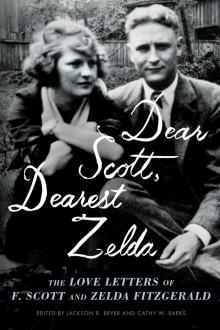 Dear Scott, Dearest Zelda
Dear Scott, Dearest Zelda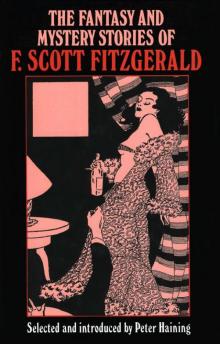 The Fantasy and Mystery Stories of F Scott Fitzgerald
The Fantasy and Mystery Stories of F Scott Fitzgerald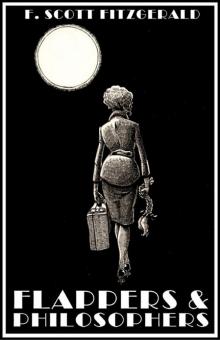 Flappers and Philosophers
Flappers and Philosophers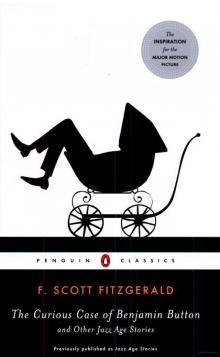 The Curious Case of Benjamin Button and Other Jazz Age Stories (Penguin Classics)
The Curious Case of Benjamin Button and Other Jazz Age Stories (Penguin Classics)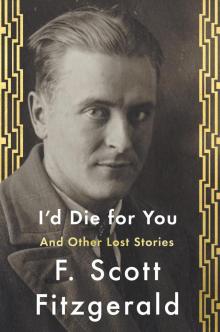 I'd Die For You
I'd Die For You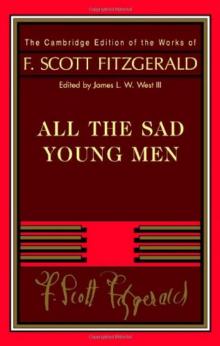 All the Sad Young Men
All the Sad Young Men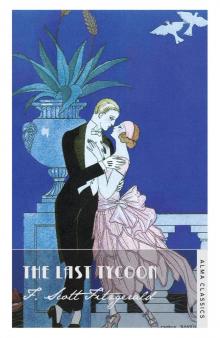 The Last Tycoon
The Last Tycoon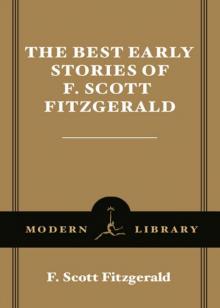 The Best Early Stories of F. Scott Fitzgerald
The Best Early Stories of F. Scott Fitzgerald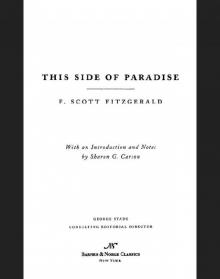 This Side of Paradise (Barnes & Noble Classics Series)
This Side of Paradise (Barnes & Noble Classics Series)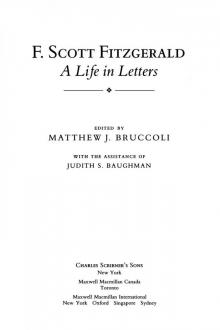 A Life in Letters
A Life in Letters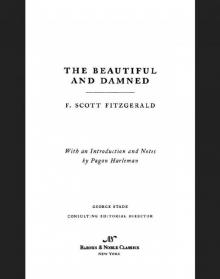 Beautiful and Damned (Barnes & Noble Classics Series)
Beautiful and Damned (Barnes & Noble Classics Series)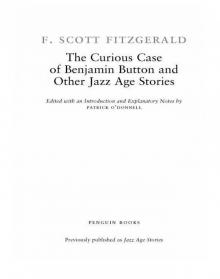 The Curious Case of Benjamin Button and Other Jazz Age Stories
The Curious Case of Benjamin Button and Other Jazz Age Stories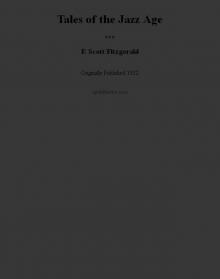 Tales of the Jazz Age
Tales of the Jazz Age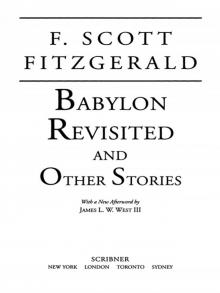 Babylon Revisited
Babylon Revisited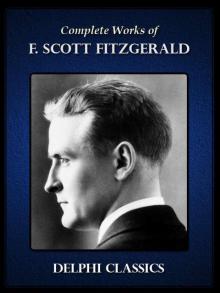 Complete Works of F. Scott Fitzgerald UK (Illustrated)
Complete Works of F. Scott Fitzgerald UK (Illustrated)